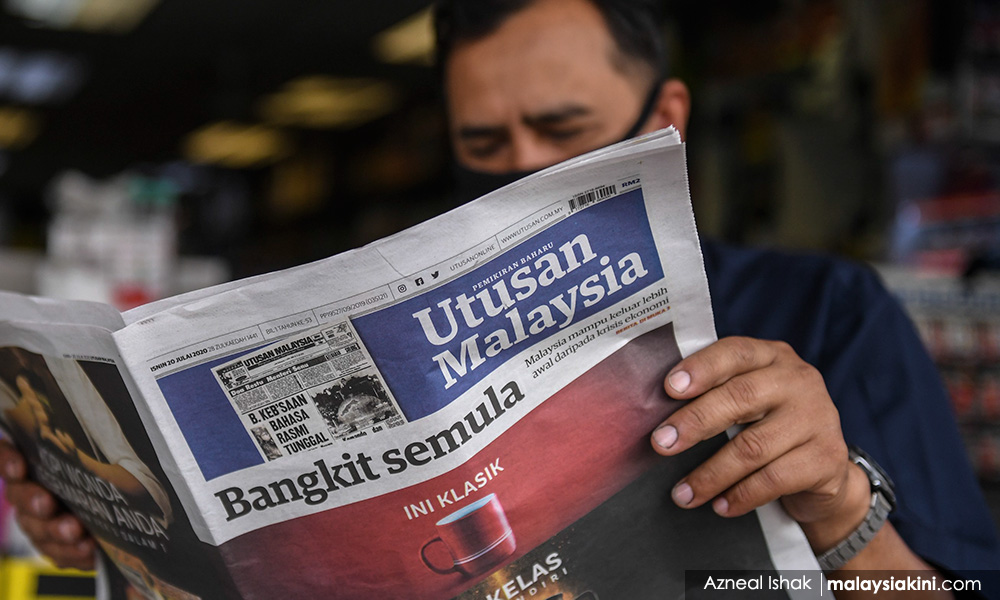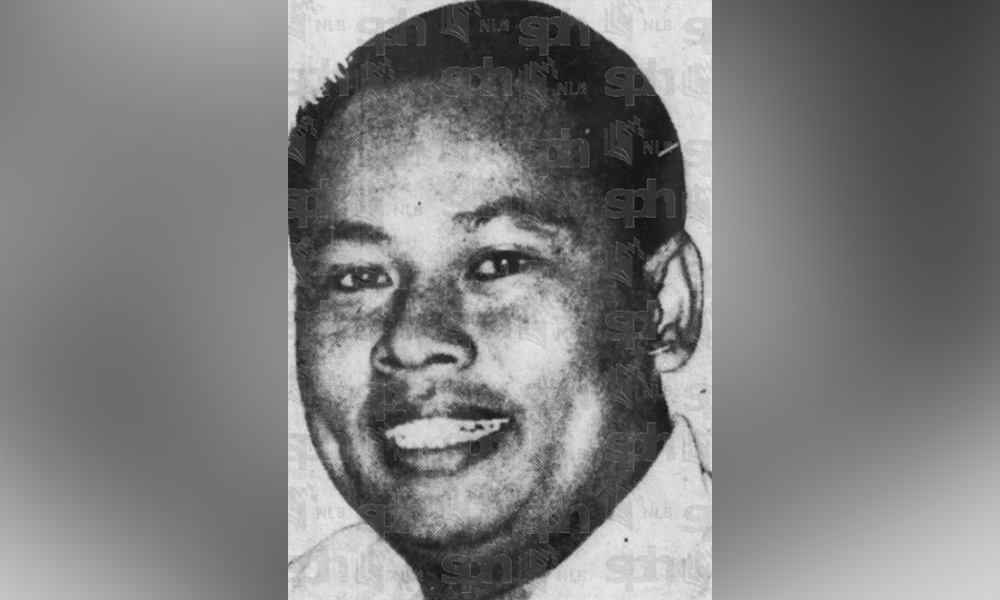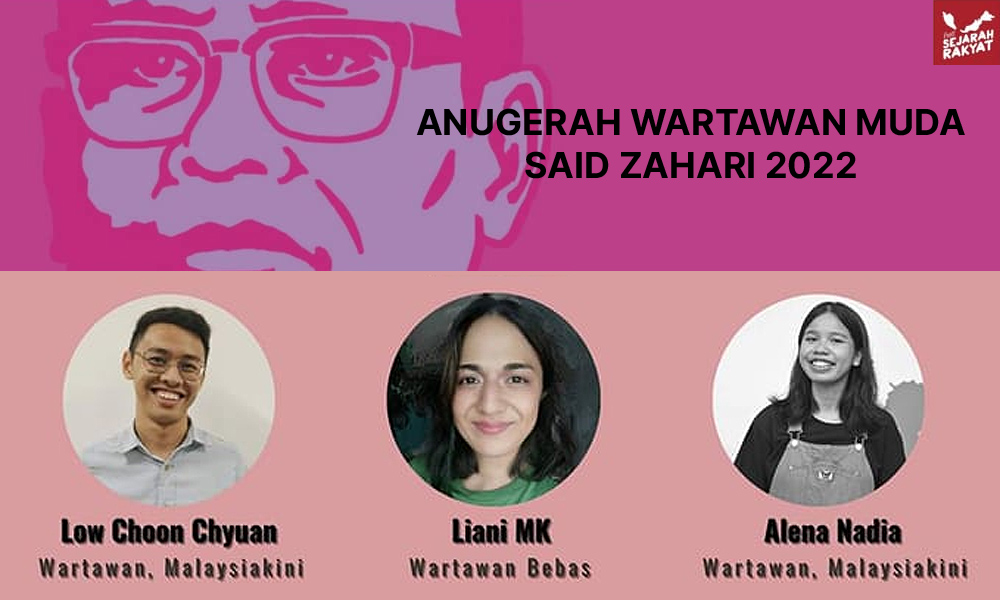I once encountered a coffin left behind in the dilapidated buildings that remain of the old Utusan Malaysia office in Chan Sow Lin, Kuala Lumpur. Nobody laid in it and there was no scent of chalk - which some of my Malay friends ask about when I retell this story.
With this being some time back, I don’t know if it is still there now or why it was there in the first place.
Built in a historically industrial area, the old offices had been in disuse for some years, with Utusan Malaysia having moved its headquarters to a newer office elsewhere.
Doing research on the area for a book that never was, I was living in Chan Sow Lin then and would often cycle past the ruins of the old Utusan Malaysia office on Jalan Lima after finishing my shift at work.
Being at the foot of development with the now-halted Bandar Malaysia just around the corner, go there now and you may find that it is hidden behind a big trailer truck or a cement mixer - with a shady Kelantanese warung located a few steps away.
At some point, an artist friend of mine asked if I would follow them recce-ing for exhibition sites. We peeked, poked and wandered around, exploring decrepit buildings in the area.
Most buildings had a jaga (caretaker) working on the premises that were familiar enough to close one eye as we looked around the site.
With gaping holes in the ceiling and guano all around on my one visit, what I saw was a newsroom stopped in time. On the walls were caricatures and notices announcing a doa selamat to be held before operations in the building were halted in 2013.
It is hard to imagine that six decades back, the very same site facilitated the historic strike of 1961, where Said Zahari - then Utusan Melayu’s staunch anti-colonial editor-in-chief - led protests for press freedom, democracy and social justice in what was a newly independent Malaya.
Like its now-decrepit premises, the Utusan Malaysia of today is also a far cry from the Utusan Melayu of the 1950s and 60s when the paper was (notably) independent, often prepared to hold the government of the day - headed by Tunku Abdul Rahman - accountable.

A considerable flash point in the history of Malay(si)a, the strike - which took place in both Malaysia and Singapore - lasted close to a hundred days and resulted in Said’s (picture, at the top) banishment.
Ironically, his ban from entering Malaysia was lifted by a man who had little respect for press freedom (see Ops Lalang) and was prime minister from 1981 to 2003.
Operation Cold Store
On Feb 2, 1963, Operation Cold Store triggered the arrests and mass incarceration of over a hundred activists for alleged involvement in “leftist” or “communist” activities in Singapore.
Under cover of darkness, a 34-year-old Said - then freshly appointed as Parti Rakyat Singapura chairperson - would be one of the many leaders taken in that night.
Parti Rakyat Singapura was also the sister party of Parti Rakyat Brunei and Parti Rakyat Malaysia (PRM). All three were left-wing, anti-colonial and influenced by Indonesian President Sukarno.
Parti Rakyat Malaysia also happens to be the forerunner of today’s Parti Keadilan Rakyat (PKR).
“(Going home following his new appointment) I was with another friend Hussein Jahidin (a journalist and later Berita Harian Singapura editor).
“I drove the car to the house in Geylang Serai but before I turned into the small lane that turns into the house, I saw a couple of people at the roadside, as though they were waiting for me to come back.
“They stood up, talking among themselves immediately and then they dispersed. I assume they must have been Special Branch people,” said Said in a recorded interview - which is said to be banned in the city-state where he was born for “undermining public confidence in the government”.

Arriving home in the wee hours of the night, Said was meant to leave for Jakarta the next morning. However, it was not meant to be as within a few hours of his return to his Geylang Serai home, a group of Special Branch officers appeared at his doorstep.
“They came into the house and ransacked the rooms. They started asking all sorts of nonsense, picking up this and that. Meanwhile, they had a truckload of Gurkha soldiers with guns and all that surrounded my house,” he recalled, adding that he was handcuffed shortly after the ransacking.
Later, recognised as a “prisoner of conscience”, the former Utusan Melayu editor would spend 17 years behind bars in Pulau Ubin - earning the distinction of being Singapore’s second-longest serving political detainee.
During this time, he was separated from his family, with his youngest child born after his imprisonment.
According to economist Jomo Kwame Sundaram, the veteran journalist’s poems, written while he was incarcerated, were smuggled out and subsequently published by his close friend and poet, Usman Awang.
Human suffering
Figures like Said Zahari walked so journalists like myself could run.
I was recently having a conversation with a colleague where we lamented how our profession exposes us to a lot of human suffering.
When I first started work as a trainee journalist, a migrant worker I interviewed for a story looking into some dubious working conditions died not long after I spoke to him.
I was told that he had something not unlike an epileptic fit and slipped in the shower once he returned to his home country. He was just a few years older than me. I was barely 22.
He said he loved Malaysia but his employers had made it hard to stay. He worked to put food on the table for his family back at home. I often think of him as I write my stories.
With the kind of stories that we do pursue, certain threats, and the occasional element of human suffering, this job cannot be just a job for those of us in the newsroom.
How we choose to respond to these instances of suffering and tragedy we’re faced with on the job may, of course, be varied, as are our approaches to journalism. Opinions are aplenty, but of course, facts are sacred.
This year, I have been lucky enough to be shortlisted for the Anugerah Wartawan Muda Said Zahari 2022 for stories I did on the death penalty, Orang Asli issues and Gerakbudaya’s Pak Chong.

And as I pored over the man’s life and work and mulled over what it means to be a journalist, I catch myself thinking: “God, I hope Said Zahari would be proud of me.”
Three shortlisted candidates - including Malaysiakini’s Low Choon Chyuan and Alena Nadia - will be appearing as panellists on a forum titled ‘Journalism in Crisis: Following the Legacy of Said Zahari’ on March 18, 2023, at 2pm.
Those interested in attending the forum may sign up here. - Mkini
ALENA NADIA is a member of the Malaysiakini team.




No comments:
Post a Comment
Note: Only a member of this blog may post a comment.